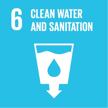About this project
Northern Afghanistan is a semi-arid area that relies on moisture from snowfall. It is cold in the winter and hot in the summer. Due to the acute needs for heating in the winter, pistachio trees have been removed from the mountains and hills while, 70 percent of the pistachio forests have been ruined during past three decades of war. Afghanis are poor and they have limited resources to do the arduous task of reforestation in this harsh environment.
Khulm district is located in Balkh Province of Afghanistan where had majority of the pistachio forests. Khulm is an absolute water stressed region of Afghanistan. As the potential runoff analysis shows that, significant water depth is generating during the year. The Geomorphology of the area is steeply. Therefore, the rainfall immediately flows into the Khulm River. So, implementation of Water Harvesting WH in the selected area is needed to reforest the pistachio forests of communities as an effective way. Construction of WH structures is simple but to find the most suitable place at a district level is very costly and time demanding hence, a previous project was conducted to determine the suitable sites of WH structures using GIS and Multi-Criteria Analysis. The study result shows that around 24000 ha (2.4%) of the watershed is suitable for WH structures.
Following the site suitability analysis, the project aims to construct the WH structures to catch runoff water for pistachio reforestation. The project targeted area is around 2 ha and will conduct trainings to the villagers so that they start replicating WH structures in the region.
Goals and Objectives
While Northern Afghanistan, due to its dryness will never support a dense forest it may be possible to recreate woodland that would reduce soil erosion in the mountains and provide some fuel and pole wood for a very needy population. In addition, since the pistachio is one of the trees identified which could grow on the mountains/hills, pistachio nut production could also help get Afghani farmers out of poverty and create a sustainable source of income which are overall goals and objective of the project.
Through implementation of the project the community farmers will be benefited through job creation and forest production. The project will need labour through different stages; WH structures excavation of WH structures, sapling plantation, watering, maintenance, and harvesting the forest production which will be employed from the youth members of the village whom are migrating to Afghan cities and abroad for job security. Therefore, in terms of local content development, this project will play a significant role.
Based on the themes and recommendations of COP 21, Afghanistan had ratified in the Paris agreement. Two main goals which targeted at “Intended Nationally Determined Contribution” INDC of Afghan government are; promoting economic development and sustainable rural livelihoods, improving access by rural communities and farmers to water to support food security, reduce poverty and improve agricultural productions. Hence, current proposed project is directly following the recommendations of COP 21 and targeting the INDC goals of Afghan government.
All benefits and product of the project will be hand over to the Khulm WUA and so, they will be responsible of the project after completion. It is mentionable that implementation of the pilot WH project at the Khulm district is helping the communities to learn the WH techniques so then they are going to replicate it in other suitable parts of their village, district, and province.
Expected result
The project will be pioneer in the country to construct WH structures for pistachio reforestation. During the project around 200 families will be directly and 250 families will be indirectly benefited through practical implementation of WH and trainings which enable the villagers to replicate the technique in their own lands. The final result would be a start to boost reforestation in the country as well as secure job and sustain income of the villagers.
Sustainable Development Goals
About me / organisation
Mohammad Shoaib Saboory
Saboory (29 years old) has a master degree from Shimane University of Japan and his major is water resources management. Saboory worked for three years as an Irrigation Engineer at Irrigation Rehabilitation Development Project (IRDP) of Government of Afghanistan. Beside that Saboory published his first research finding entitled “Determining Suitable Water Harvesting Structures Using Multi-Criteria and GIS, A case study at Khulm Watershed of Afghanistan”. Currently, Saboory is a Water Resources Consultant for the World Bank, contributing to the study “Pilot Climate Change Impact Analysis on Hydrology and Agriculture in Afghanistan”. Moreover, Saboory is Joint-Coordinator of Youth Professionals at ICID.
Partners include the Water User Association of Khulm District and Balkh University, Afghanistan

